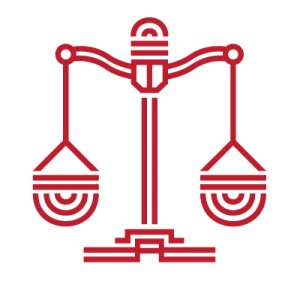Best Wrongful Termination Lawyers in Midrand
Share your needs with us, get contacted by law firms.
Free. Takes 2 min.
List of the best lawyers in Midrand, South Africa
About Wrongful Termination Law in Midrand, South Africa
Wrongful termination occurs when an employee is dismissed from their job in a manner that breaches the terms of their employment contract, violates South African labour laws, or contravenes the employee's rights. In Midrand, which falls under the jurisdiction of national South African labour law, wrongful termination is governed primarily by the Labour Relations Act and the Basic Conditions of Employment Act. These laws set out the fair procedures and legitimate grounds for dismissal. Employers must ensure terminations are substantively and procedurally fair, or risk facing legal consequences.
Why You May Need a Lawyer
Many individuals find themselves seeking legal guidance when faced with job loss under circumstances they suspect may be unfair or unlawful. Common situations where legal help may be necessary include:
- Being dismissed without a valid or fair reason
- Not being given the opportunity to respond to allegations before termination
- Experiencing discrimination based on race, gender, age, religion, or disability with respect to termination
- Retrenchments that do not follow the necessary consultation or procedural steps
- Terminations related to whistleblowing or exercising workplace rights
- Breach of employment contract by the employer
- Dismissals following maternity leave or as a consequence of pregnancy
An experienced labour lawyer can help you determine whether your dismissal was legal, advise on the best way forward, assist in lodging claims at the appropriate forums, and represent you in hearings or negotiations.
Local Laws Overview
In Midrand, as in the rest of South Africa, wrongful termination is primarily addressed via:
- Labour Relations Act (LRA): This is the main statute governing fair dismissal and defines what constitutes an unfair dismissal, including both substantive and procedural aspects. It outlines permissible grounds for dismissal, like misconduct, incapacity, or operational requirements.
- Basic Conditions of Employment Act (BCEA): This sets minimum standards for employment including notice periods and procedures for terminating contracts.
- Employment Equity Act: Prohibits unfair discrimination in any aspect of employment, including dismissal.
- CCMA (Commission for Conciliation, Mediation and Arbitration): Acts as the primary forum for dealing with unfair dismissal disputes. Employees must refer their case to the CCMA generally within 30 days of dismissal.
- Protected Disclosures Act: Protects employees who are dismissed for whistleblowing.
Employers are required to follow fair procedures and ensure that there is a fair and lawful reason for any dismissal. Failure to do so can result in orders for reinstatement, compensation, or other remedies.
Frequently Asked Questions
What qualifies as wrongful or unfair termination in South Africa?
Wrongful or unfair termination occurs when an employer dismisses an employee without a valid reason or without following fair and proper procedures as stipulated by the law. Examples include being fired without notice, discrimination, or not being given a chance to defend oneself.
What should I do if I believe I have been wrongfully terminated?
You should keep records of your dismissal, any communications, and your employment contract. Seek legal advice or approach the CCMA within 30 days to lodge a dispute for unfair dismissal.
How much compensation can I receive for wrongful termination?
If the CCMA or a Labour Court finds that the dismissal was unfair, compensation can be up to 12 months' salary for ordinary unfair dismissals, or up to 24 months for automatically unfair dismissals.
Are there time limits for lodging a claim?
Yes, you need to refer your dispute to the CCMA within 30 days from the date of dismissal or knowledge of the unfair action.
Am I entitled to notice or severance pay?
Yes, unless you are dismissed for serious misconduct, you are entitled to receive notice as per your employment contract or statutory minimums. For retrenchments, you may also be entitled to severance pay.
What is constructive dismissal?
Constructive dismissal occurs when you resign because your employer has made your working conditions intolerable, effectively forcing you to leave. This can also amount to unfair dismissal if proven.
What if I was dismissed for reasons related to pregnancy or maternity leave?
Dismissal on grounds of pregnancy or related leave is automatically deemed unfair in South African law, and you have the right to challenge it.
Do I need a lawyer to file a case with the CCMA?
No, you do not need a lawyer to file a dispute with the CCMA. However, legal advice or representation can be highly beneficial in complex cases.
What if my dismissal was due to discrimination?
If you were dismissed for reasons related to discrimination, your dismissal is automatically unfair. You can approach the CCMA or the Labour Court for appropriate relief.
Can employers fire employees without any reason in South Africa?
No, employers must have both a fair reason and follow fair procedure. Dismissal without a fair reason or procedure can be challenged as unfair.
Additional Resources
There are several organizations and bodies that can assist you with wrongful termination issues in Midrand and the broader Gauteng province:
- Commission for Conciliation, Mediation and Arbitration (CCMA)
- Gauteng Department of Employment and Labour
- Legal Aid South Africa
- South African Human Rights Commission (SAHRC)
- South African Labour Guide (for general resources and information)
- Local law societies
These entities provide a range of services, from mediation and advice to legal representation for those who qualify.
Next Steps
If you believe you have been wrongfully or unfairly dismissed in Midrand, take the following steps:
- Document everything related to your dismissal, including contracts, correspondence, and any notices or warnings received.
- Seek advice from a legal professional or contact the CCMA for guidance on lodging a dispute.
- Refer your matter to the CCMA within 30 days from the date of your dismissal.
- Prepare for mediation or arbitration by gathering evidence and possible witnesses.
- If necessary, seek assistance from organizations such as Legal Aid South Africa for legal representation.
Remember that acting promptly is critical due to time limits on lodging complaints. Engaging a lawyer can help you understand your rights, evaluate your case, and improve your chances of obtaining a fair outcome.
Lawzana helps you find the best lawyers and law firms in Midrand through a curated and pre-screened list of qualified legal professionals. Our platform offers rankings and detailed profiles of attorneys and law firms, allowing you to compare based on practice areas, including Wrongful Termination, experience, and client feedback.
Each profile includes a description of the firm's areas of practice, client reviews, team members and partners, year of establishment, spoken languages, office locations, contact information, social media presence, and any published articles or resources. Most firms on our platform speak English and are experienced in both local and international legal matters.
Get a quote from top-rated law firms in Midrand, South Africa — quickly, securely, and without unnecessary hassle.
Disclaimer:
The information provided on this page is for general informational purposes only and does not constitute legal advice. While we strive to ensure the accuracy and relevance of the content, legal information may change over time, and interpretations of the law can vary. You should always consult with a qualified legal professional for advice specific to your situation.
We disclaim all liability for actions taken or not taken based on the content of this page. If you believe any information is incorrect or outdated, please contact us, and we will review and update it where appropriate.











